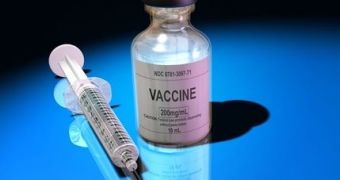An article published in yesterday's issue of the journal Science details the results of an investigation carried out to test the effectiveness of a newly-developed malaria vaccine.
Scientists explain that, while it will be some time before a malaria vaccine that is both effective and not all that costly hits the market, their work indicates that they are on the right track towards developing it.
NPR reports that, as part of this investigation, researchers at the National Institute of Allergies and Infectious Diseases in the US administered a total of 15 volunteers various doses of the new malaria vaccine.
Of these 15 people, 6 were given high doses. The others were given normal ones, the same source informs us.
The volunteers were then closely monitored for a period of time of several weeks. By the looks of it, just 3 of them came down with malaria.
What's more, these 3 individuals were amongst the people who had been administered a normal dose of the vaccine.
This suggests that, when given at high doses, the drug can do a pretty good job protecting people against malaria.
The researchers also monitored a control group made up of 12 people, none of whom were administered the vaccine. Sooner or later, 11 of these individuals contracted malaria.
Commenting on the outcome of this series of experiments, Dr. Anthony Fauci said that, “It's true to say that this is really impressive to have this degree of protection.”
However, since the study was a small-scale one, he warned that ordinary folks and the scientific community would do best to wait for other investigations to be carried out before jumping for joy.
“But on the other hand you have to temper it by saying the numbers are still relatively small,” he said.
The scientists working on this project hope that future research will help them determine for how long this vaccine can protect a person against malaria. Besides, they hope a final version of the vaccine will be available for widespread use by 2017 or 2018 at the latest.

 14 DAY TRIAL //
14 DAY TRIAL //